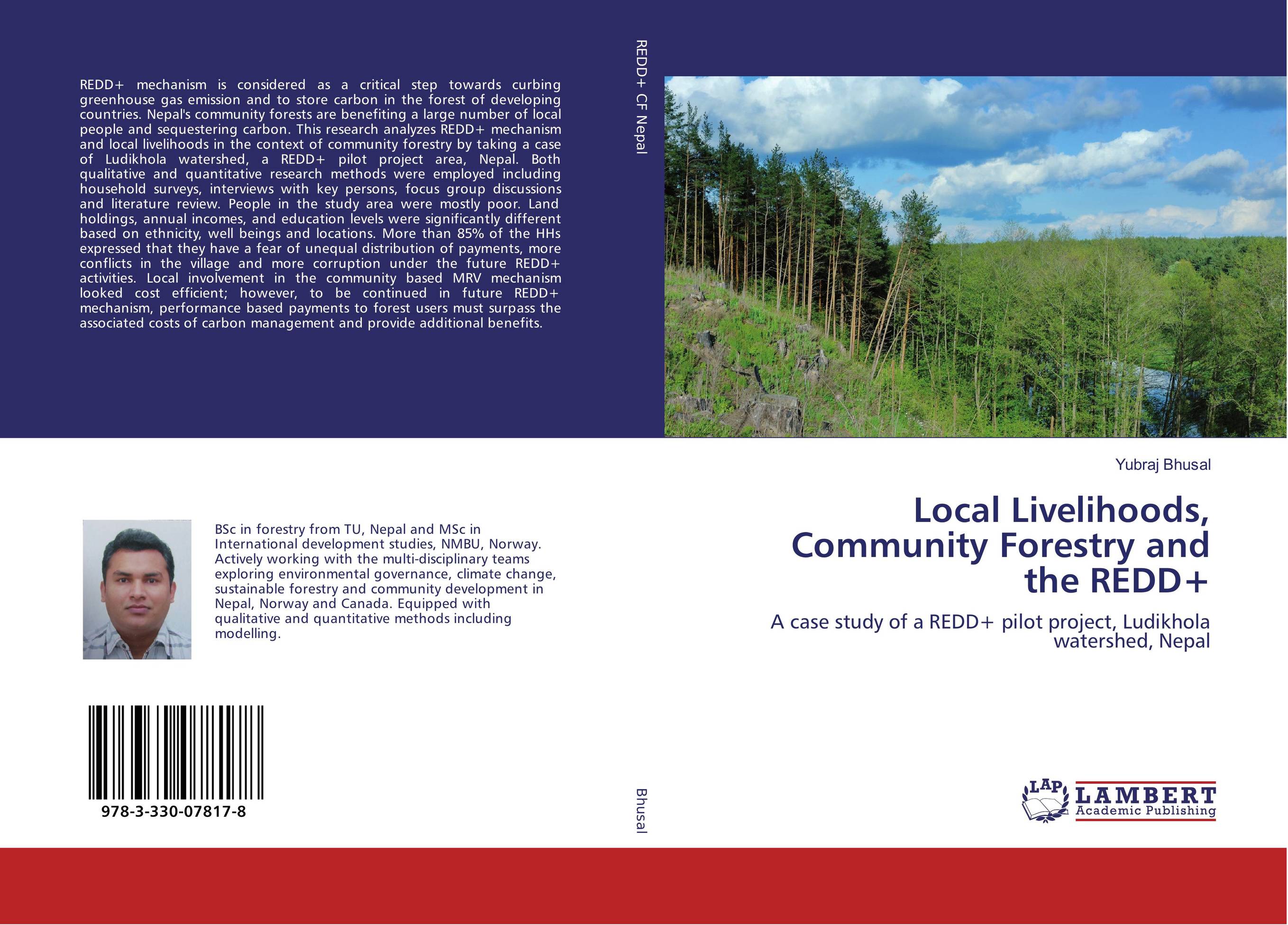| Поиск по каталогу |
|
(строгое соответствие)
|
- Профессиональная
- Научно-популярная
- Художественная
- Публицистика
- Детская
- Искусство
- Хобби, семья, дом
- Спорт
- Путеводители
- Блокноты, тетради, открытки
Local Livelihoods, Community Forestry and the REDD+. A case study of a REDD+ pilot project, Ludikhola watershed, Nepal

В наличии
| Местонахождение: Алматы | Состояние экземпляра: новый |

Бумажная
версия
версия
Автор: Yubraj Bhusal
ISBN: 9783330078178
Год издания: 2017
Формат книги: 60×90/16 (145×215 мм)
Количество страниц: 172
Издательство: LAP LAMBERT Academic Publishing
Цена: 39286 тг
Положить в корзину
| Способы доставки в город Алматы * комплектация (срок до отгрузки) не более 2 рабочих дней |
| Самовывоз из города Алматы (пункты самовывоза партнёра CDEK) |
| Курьерская доставка CDEK из города Москва |
| Доставка Почтой России из города Москва |
Аннотация: REDD+ mechanism is considered as a critical step towards curbing greenhouse gas emission and to store carbon in the forest of developing countries. Nepal's community forests are benefiting a large number of local people and sequestering carbon. This research analyzes REDD+ mechanism and local livelihoods in the context of community forestry by taking a case of Ludikhola watershed, a REDD+ pilot project area, Nepal. Both qualitative and quantitative research methods were employed including household surveys, interviews with key persons, focus group discussions and literature review. People in the study area were mostly poor. Land holdings, annual incomes, and education levels were significantly different based on ethnicity, well beings and locations. More than 85% of the HHs expressed that they have a fear of unequal distribution of payments, more conflicts in the village and more corruption under the future REDD+ activities. Local involvement in the community based MRV mechanism looked cost efficient; however, to be continued in future REDD+ mechanism, performance based payments to forest users must surpass the associated costs of carbon management and provide additional benefits.
Ключевые слова: Carbon, Climate change, Community Forest, deforestation, Environmental governance, livelihood, Nepal, REDD



